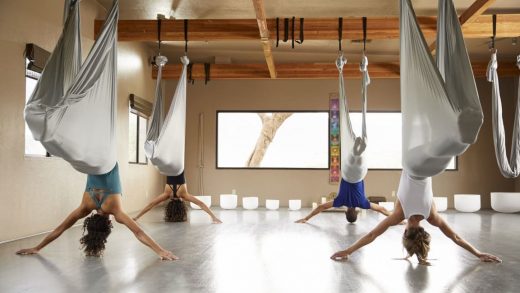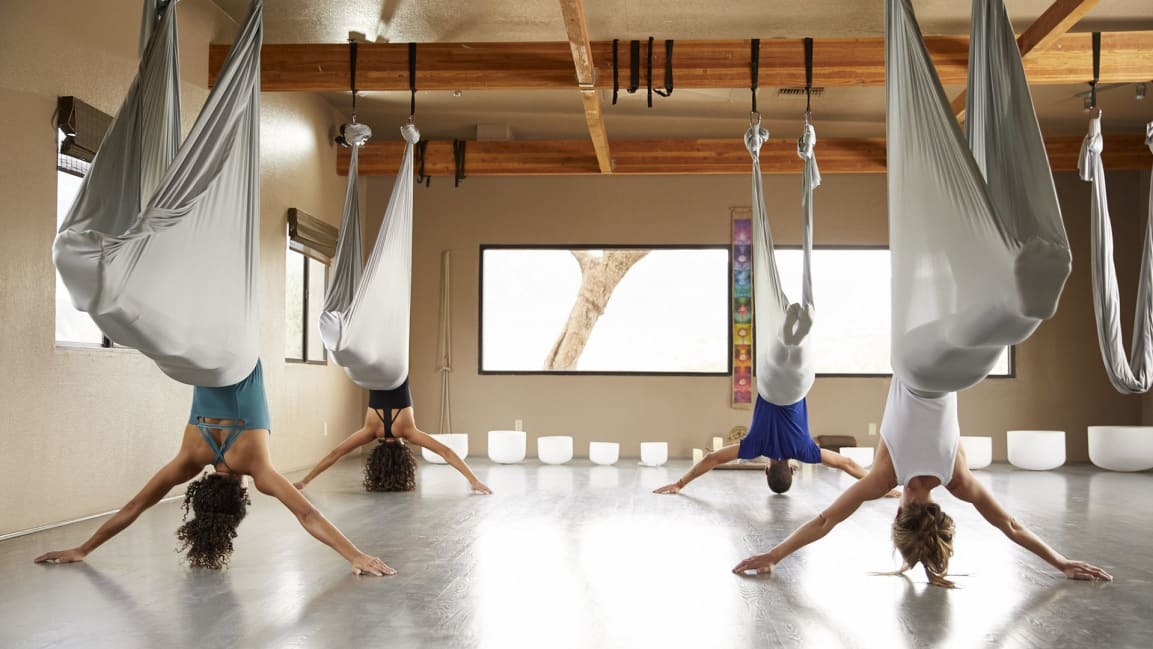Forget detox retreats: Mindful tech-free experiences is the new vacation trend
Imagine you had to choose between checking Instagram or one of the following activities: a floating swimming pool massage with soothing underwater music, a one-on-one beekeeping session (complete with full beekeeper suit), or zip-lining across the Arizona desert landscape at sunset.
Such a wealth of possibilities might just inspire you to put your phone away.
That’s the philosophy driving iconic resort Miraval in its aggressive response to a sudden increase in tech-addicted guests. While other high-end hospitality groups confiscate phones or ban Wi-Fi, Miraval takes a far more balanced and seductive approach: Remind people how good screen-free life can be.
“The schedule is designed to help people fill in the [tech-free] gaps in their day,” explains Jill Harlow, director of brand and marketing at Miraval Group. “There’s a lot of play here.”
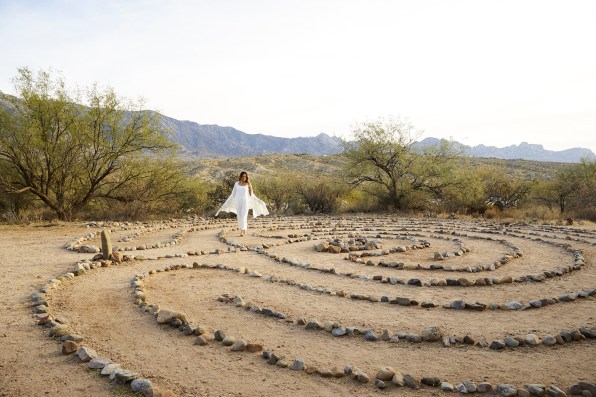
For as little as $529 a night, the all-inclusive property, which operates locations in Tucson, Arizona, and Austin, Texas, offers 140 weekly classes ranging from standard vacation fare such as hikes, yoga, and cooking lessons to more adventurous offerings that demonstrate some type of new, exciting feature. Guests can meditate alongside horses or even use the animals’ bodies as art canvases (with no-toxic paint, of course), while fitness junkies partake in “cardio drumming” (a mix of banging sticks and jumping jacks). There’s a tightrope lesson with cables hoisted 35 feet in the air.
On the more spiritual end, a “floating meditation” gently rocks guests in a silk hammock to the soothing sounds of crystal bowls. Guests can also create custom “chakra bracelets” with gemstones that reflect their inner energy or utilize essential oils for an “aroma essence” yoga lesson. Even spa treatments include mindful elements: “Intuitive massages” require guests to set an intention as Native American shamans meld together bodywork, spiritual wisdom, and sacred desert plants.
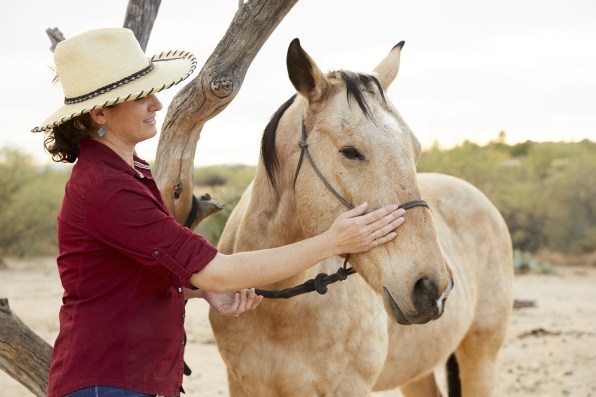
These unorthodox activities are meant to be experiential ways to achieve mindfulness. When one is preparing to climb up a pole or interact with a horse, there’s an overwhelming sense of being present, says psychologist Anne Parker, who serves as wellness counselor at the 400-acre Miraval Tucson. It’s all part of pushing people to embrace a fresh mode of living that’s more inclusive of (tech-free) outdoor activities.
“Humans are programmed to cling to what’s familiar,” notes Parker. “[Guests] gain confidence and come back feeling invigorated when they try something completely new. Our hope is that when we facilitate new experiences, they’re going to be more willing to have those out-of-the-comfort-zone experiences in their lives.”
Granted, just because Miraval isn’t snatching phones doesn’t mean it approves of their use. The company website clearly states the resort policy—that guests should unplug from all digital devices in public spaces save for a few designated areas. They are free to scroll away in their rooms should they wish, though pre-arrival email communication sends guests tips for unplugging.
Airport shuttle drivers remind the newly arrived to “live in the now” and turn cell phones to silent or airplane mode upon arrival. The check-in desks hand out cell phone “sleeping bags,” kindly advising those on campus to put the device to bed. On-site signage reminds people to put their phones down and take in their surroundings, while a lending library of books and current magazines replace e-readers at the pool.
As Harlow attests, “There’s really no mindfulness when you’re looking down at your phone. It’s hard to connect.”
Should someone use a phone in a banned area—which could be triggering to fellow guests—a Miraval staffer will politely approach them to put it away.
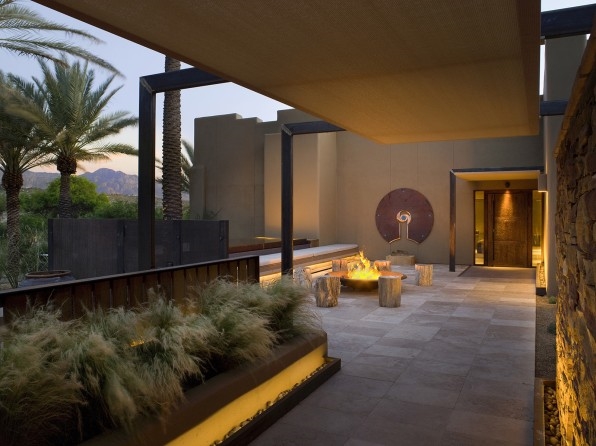
“We don’t take the detox approach because we can’t live our lives in a digital detox,” says Parker, noting that many type A guests have high-pressure jobs that demand constant connection. Unplugging is especially difficult for female guests, many of them family caregivers who feel responsible for checking in and being available 24/7—even on vacation. The all-or-nothing approach doesn’t adequately relate to everyday life.
“Our digital life is here to stay. It’s not going away,” says Parker. “We want to help guests develop a different relationship with their digital life so that it supports what they’re doing and how they want to live.”
Nudging the “normal neurotics”
Softly nudging guests towards a more thoughtful way of living—versus fully restricting or shaming them—has been at the core of Miraval since its start more than 20 years ago. The founder originally established the luxe resort as an addiction treatment center based on instilling new personal skills and lifestyle changes. Long before mindfulness entered the public sphere, Miraval educated guests on removing emotional blocks and finding a mind-body balance in a supportive environment.
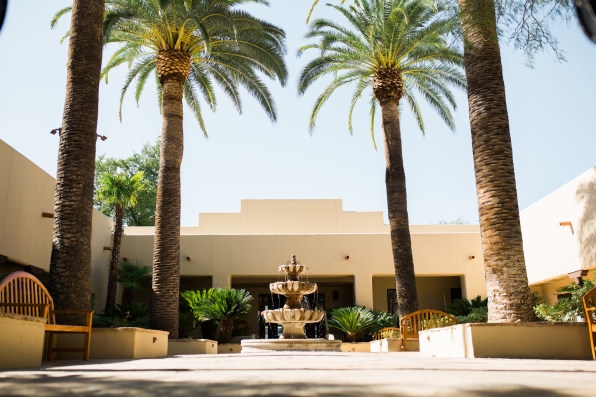
Today, that focus has more or less shifted to what Parker calls “the normal neurotics,” i.e., the overworked and stressed who aren’t necessarily dealing with a particular diagnosis but crave a healthier lifestyle. That philosophy is infused in every part of the day, starting with early-morning nature hikes all the way through restorative, sleep-inducing evening massages. It’s part of the $639 billion global wellness tourism market, a sector growing more than twice as fast as general tourism, according to the Global Wellness Institute.
A “mindful eating” communal breakfast, for example, asks guests to put their fork down between each bite, thereby helping them focus on why and how much they’re consuming.
“When you go on a hike, it’s not just about going on the hike,” says Parker. “It’s about: What do you experience and learn? How do you interact with other people? What do you notice in yourself?”
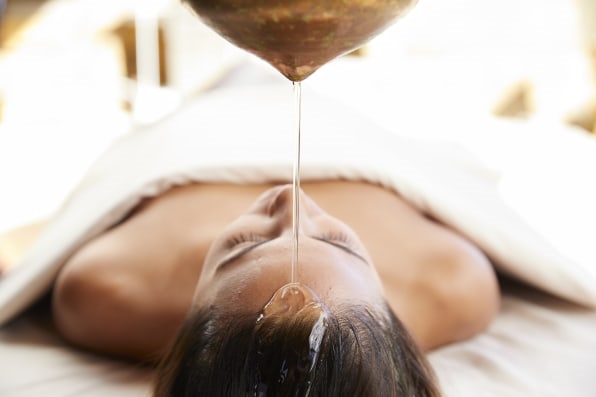
Miraval also invests in digital wellness workshops. Parker regularly teaches a class called “Who Is in Control of Your Life: You or Your Phone?” which stresses how to have a more productive relationship with one’s phone. More than anything, it centers on managing one’s attention instead of just managing one’s time. That’s an ongoing theme at Miraval, says Parker, because ultimately, “if you’re really going to create a life in balance, whatever that means for you, you have to manage your attention. That’s what it boils down to.”
In addition, the resort hosts Catherine Price, author of How to Break Up with Your Phone: The 30-Day Plan to Take Back Your Life, for a seminar on retraining the mind to be less reliant on technology. Price says she was drawn to Miraval’s gentle but still firm tech-free policy, noting the fine line between encouraging people and downright irritating them.
“What Miraval is doing is basically turning [tech addiction] into the new smoking,” says Price. “As in, if you’re addicted to smoking, we can’t stop you from smoking, but you’re going to have to do it in a way that does not expose other people to secondhand smoke—except in this case it’s secondhand screen.”
But can the average four-day stay really inspire long-lasting change? The effects run the gamut, with some guests stating that trips dramatically changed their lifestyle, while others say lessons stuck with them for a few weeks before they reverted to former habits.
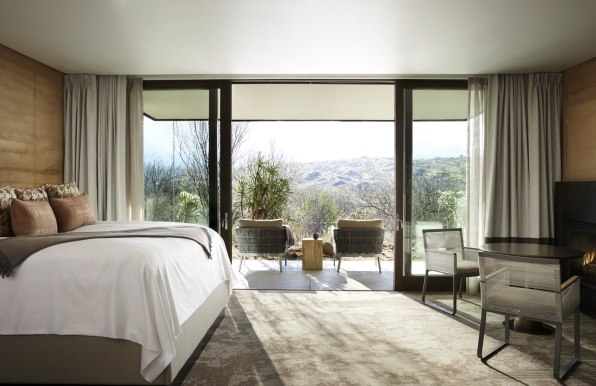
Not that regressing is exactly a failure, says Parker: “The seed has been planted. They’ve had a different experience, and so now they know the possibility of it being different. And so even if they fall back into some old patterns, they’re not in those old patterns in exactly the same way.”
While guests might not go home and take up beekeeping in lieu of mindless Facebook scrolling, they might just make one small change like, say, pausing before opening an app during a moment of boredom. Maybe they’ll go out and take a walk instead. (Upon departure, Miraval offers guests free digital phone backgrounds to remind users to live in the moment when at home.)
“Habit change requires incremental change. Rarely do we just flip the switch and we’re done,” stresses Parker. “If people leave here and maybe it’s only one small thing that they change, that’s progress. That can lead to other changes over time. But unless there’s something to sort of kickstart that first change, it’s not gonna happen.”
Fast Company , Read Full Story
(17)

